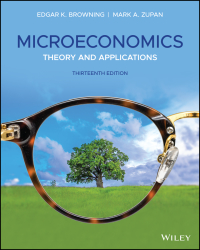Question
(1) Is there a greater chance of market failure (no transaction due to gap between asking & bid price) in the contemporary relationship between potential
(1) Is there a greater chance of market failure (no transaction due to gap between asking & bid price) in the contemporary relationship between potential investors (shareholders in public) and professional managers (separation of ownership and management)?
(2) Will auditor's role change under the contemporary shareholder/professional management relationship? Why & why not?
(3) what do you think was the biggest benefit of auditing function in the early British financial market?
(4) One of the very interesting practices in Britain at that time was that auditors were required to have equity position in the firm they were supposed to audit. This is contradictory to the current U.S. system (per ethical standards & PCAOB ) that bans the investment by auditors in audit client (independence rule). Any opinions why there is discrepancy in investment rules of auditors between two periods?
(5) Given that there are various types of seasoned auditors such as generalists and specialists (article generally covers concept of novices & experts, though), do you think it easier or more difficult for specialists to perform audit outside their specialty (domain) than generalists?
(6) Are there, do you think, differences in knowledge (& its subset, amount of knowledge, structure, problem representation, reasoning, and information search) and performance between generalists & specialists (within their domains & outside domain)?
Step by Step Solution
There are 3 Steps involved in it
Step: 1

Get Instant Access to Expert-Tailored Solutions
See step-by-step solutions with expert insights and AI powered tools for academic success
Step: 2

Step: 3

Ace Your Homework with AI
Get the answers you need in no time with our AI-driven, step-by-step assistance
Get Started


